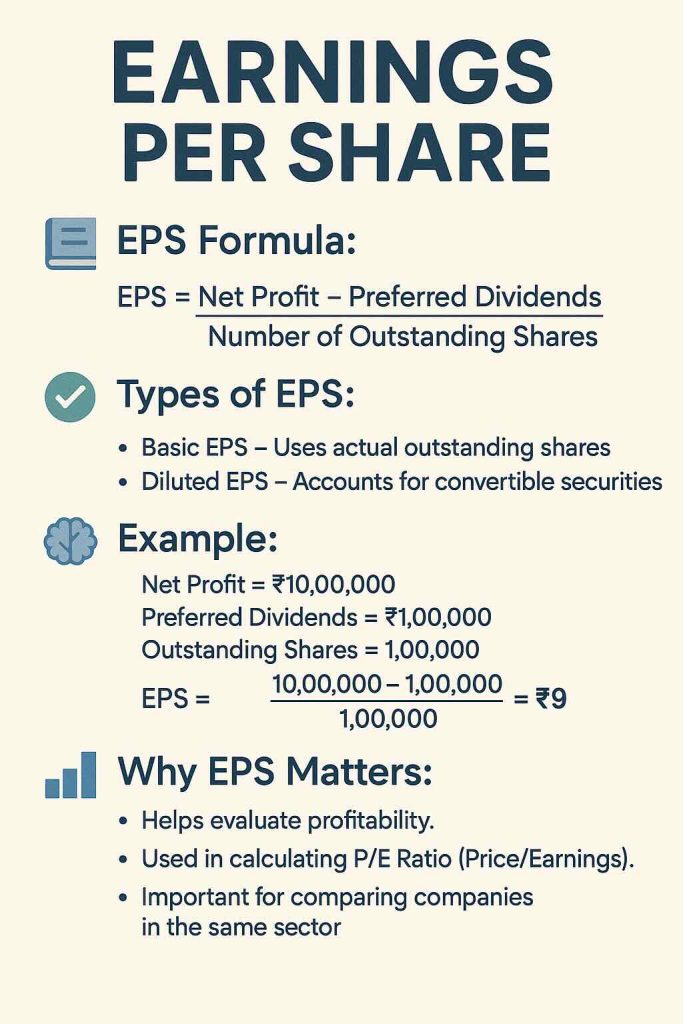Earning Per Share – Earnings of a company mean nothing but the net profit after taxes and minority interest and EPS means Earnings per share available to the equity shareholders of the company for each share held after all other external stakeholders have been paid/accounted for.
Quick Links
Why EPS Matters:
- Helps evaluate profitability.
- Used in calculating P/E Ratio (Price/Earnings).
- Important for comparing companies in the same sector.
Definition of Earning per share:
The portion of a company’s profit allocated to each outstanding share of common stock. Earnings per share serve as an indicator of a company’s profitability.
Calculated using
Eps=(Net income – preference divided)/Average outstanding shares.
When calculating, it is more accurate to use a weighted average number of shares outstanding over the reporting term because the number of shares outstanding can change over time. However, data sources sometimes simplify the calculation by using the number of shares outstanding at the end of the period.
Earnings per share is generally considered to be the single most important variable in determining a share’s price. It is also a major component used to calculate the price-earnings ratio.
An important aspect of EPS that’s often ignored is the capital that is required to generate the earnings (net income) in the calculation. Two companies could generate the same EPS number, but one could do so with less equity (investment) – that company would be more efficient at using its capital to generate income and, all other things being equal, would be a “better” company.
Investors also need to be aware of earnings manipulation that will affect the quality of the earnings number. It is important not to rely on any one financial measure, but to use it in conjunction with statement analysis and other measures.

Basic EPS:
Earnings Per Share ‘A rough measurement of the amount of a company’s profit that can be allocated to one share of its stock. Basic earnings per share (EPS) do not factor in the dilutive effects on convertible securities
Basic EPS=(net income – preferred dividends) / weighted average number of common shares outstanding
If a company has a complex capital structure, that is, it has issued potential dilutive securities, diluted EPS is considered to be a more precise metric than basic EPS. Diluted EPS takes into account all of the outstanding dilutive securities that could potentially be exercised, such as stock options and convertible preferred shares and shows how such an action would impact earnings per share.
Companies with a complex capital structure must report both basic EPS and diluted EPS to provide a more accurate picture of their earnings per share; basic EPS will always be the higher of the two. If the company has a simple capital structure, it only needs to report basic EPS.
Diluted EPS:
It’s a performance indicator used to measure the quality of a company’s earnings per share if all convertible securities were exercised. Convertible securities refer to all outstanding convertible preferred shares, convertible debentures, stock options (primarily employee-based), and warrants. Unless the company has no additional potential shares outstanding, the diluted EPS will always be lower than the simple EPS.
Recommended Articles:







